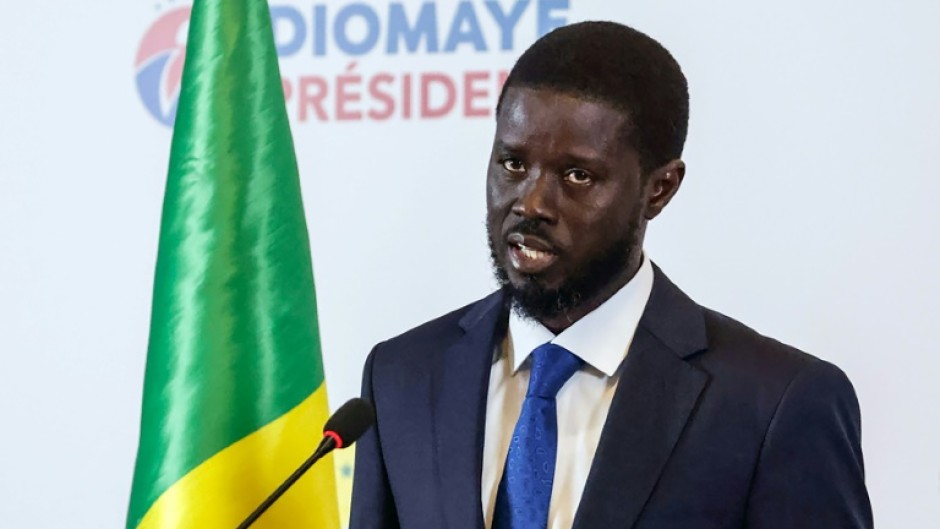DAKAR - When Bassirou Diomaye Faye is sworn in on Tuesday after winning Senegal's presidential election on a wave of change, the challenges he faces seem as tough as the expectations are high.
AFP takes a look at the intentions of the anti-establishment leader.
- Priority projects -
Faye set out his priorities in his first public statements after his election victory: Lower the cost of living, fight corruption, and ensure national reconciliation.
Despite three tense years and deadly unrest, he made a first step on the path to reconciliation by meeting outgoing president Macky Sall on Thursday, just days after Faye's release from jail.
He noted that Sall's "vigilance and commitment had guaranteed a free, democratic and transparent vote".
Faye has promised to restore national "sovereignty", to renegotiate oil and gas contracts, and to improve fishing rights.
He wants to leave the CFA franc, seeing in the regional currency a French colonial legacy, and to invest more in agriculture with the aim of reaching food self-sufficiency.
But for Dakar university economist Mame Mor Sene, the biggest challenge will be job creation.
Official figures put the unemployment rate at 20 percent in a country where 75 percent of the population of 18 million is under the age of 35.
The situation is deemed so bad by many youths that they have been fleeing poverty in increasing numbers, joining the waves of migrants trying to reach Europe.
- Why will it be so difficult? -
"Resolving the unemployment problem will take time and will not be easy," Sene said. "The whole structure of the economy needs to be changed."
He said huge investments would be required for the industrial sector in an economy that has long been built on services.
Sene suggested that Faye should not try to take sole responsibility for creating new jobs, saying instead that the government should work with the private sector and invest in human capital to nurture a business-friendly environment.
Buffeted by the Covid pandemic and the war in Ukraine, Senegal's economy has suffered from the external shocks, with the cost of basic goods and rents skyrocketing.
Voters are expecting results fast, however, and Sene cautioned that "they will need to be patient".
"Everything will not be sorted out from one day to the next."
- What can happen quickly? -
The first big test will be to foster a "favourable environment and to restore confidence between the Senegalese", which was lost under President Macky Sall, according to Sene.
Faye sought to reassure investors that Senegal "will remain a friendly country and a sure and reliable ally for any partner that engages with us in virtuous, respectful and mutually productive cooperation".
Political analyst El Hadji Mamadou Mbaye said Faye needed to offer the electorate early proof of his intentions by "quickly lowering the price of basic products" such as rice, oil and electricity.
Institutional reforms and the fight against corruption through the creation of a national financial prosecutor could also be put in place swiftly.
Faye will have to decide whether to dissolve the National Assembly that was elected in September 2022, in which his party does not have a majority.
Under the Senegalese constitution the assembly must first complete two years, which would enable new elections from mid-November.
Faye's first government "will be made up of men and women of merit and virtue... from at home and from the diaspora who are known for their competence, integrity and patriotism", Mbaye said.
- by Adrien Marotte

